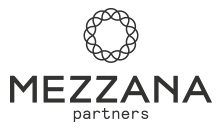We’re spending less time reflecting, thinking and daydreaming – and far more of our time in ‘doing’ mode. And that comes at a cost. In this blog, we share some of the science behind this, and how you can make some simple and positive changes to how you work.
The Science
Research has identified that our brain has two major, but distinct neural networks:
- The Task Positive Network (TPN)- the part of our brain that typically handles our attention demanding tasks. It is responsible for goal orientation, reacting to and working with our senses, short term memory, planning and reasoning.
- Default Mode Network (DMN) – the part of the brain that fires up when we’re not focussed on a specific task. It’s characterised by a sense of wakeful rest. It covers dreaming, envisioning the future, long-term memory, introspection, self-referential thought and our capability to have intuition about others.
These brain functions are anti-correlated. As one gets stronger, the other gets weaker, but we know that both are needed for great decision making. By neglecting time in our DMN, we compromise our future focus, the innovation that comes from relaxed attention and our ability to appreciate the emotional context of those around us. Too much time in our TPN – which Covid has exacerbated – is linked to burnout and disconnection.
How can you therefore kick start your DMN and build your reflective muscle? We share 3 simple tools.
1. What, So What, Now What? (Rolfe et al, 2001)
The simplest is often the best. This model which is incredibly easy to remember fundamentally asks three questions. What? So What? Now What?
- What: Describe essentially what happened. Was it good or bad? Which bit did you enjoy and which things were more challenging?
- So What: Describe why this experience was significant. What did the experience make you ask about yourself? What emotions came up? What made certain elements feel significant?
- Now What: Is about next steps. How will you apply yourself with this new thinking? What will you do differently? What about this could you share with your friends, family, colleagues or coach?
2. Gibbs Reflective Cycle (1998)
Taken from Graham Gibbs’ work around learning from experiences, the Reflective Cycle gives a great structure to process events and consider how these experiences inform future decision making. Its cyclic nature is great to use with either repeating events or iterative change.

3. Decision Making
These 10 questions can really build awareness around intention and impact:
- Am I prepared to pay the cost of this decision, financial or otherwise?
- Does this action benefit everyone around me as well as myself?
- Does this action represent growth for me as a person?
- Does this action come from wisdom and courage, instead of fear or doubt
- Does this action stem from an internal desire instead of something I feel is expected of me, or put upon me by others?
- By saying “yes” to this, I am saying “no” to….
- By saying “no” to this, am saying “yes” to…
- What will happen if I do this?
- What will not happen if I do this?
- What will this give me that don’t already have?
Taking time to reflect, and connect with what feels important is hugely valuable to your productivity. A study by Bain in 2015 determined that it would take two and a quarter ‘satisfied employees to generate the same output as one inspired employee’. Feelings of guilt and responsibility can keep us locked into a cycle of tangible outputs and yet it is the focus on the intangible which may be your superpower and ticket to achievement.
What are you doing to ensure you’re taking that essential time to step back, think and reflect?





